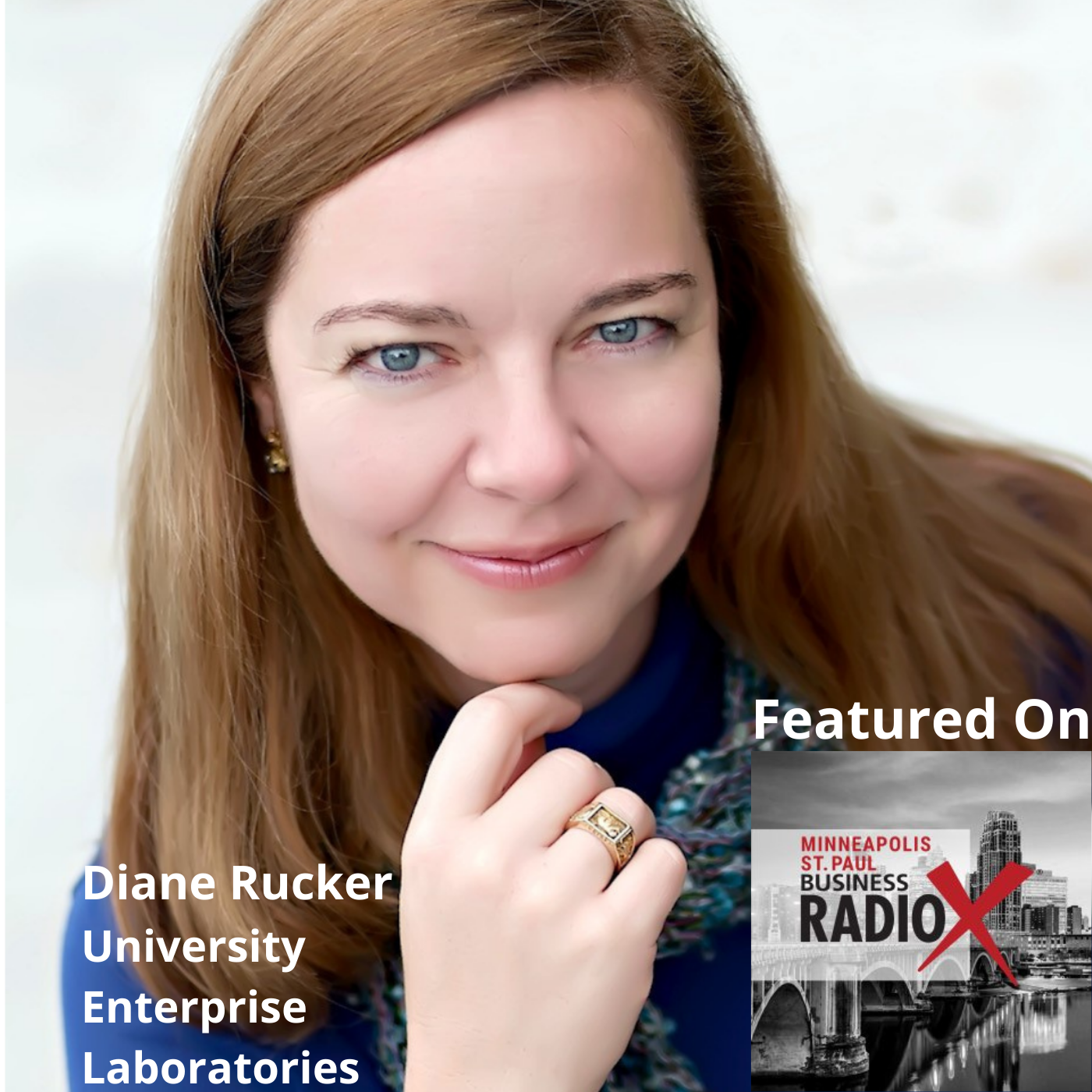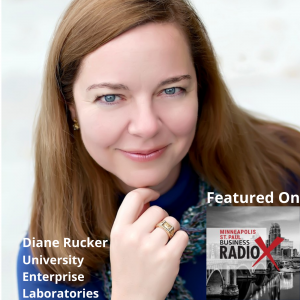

Why the Startup Ecosystem in the Twin Cities has Blossomed, with Diane Rucker, University Enterprise Laboratories
Diane Rucker: [00:00:00] Now, the contrast between a really strong ecosystem and one that’s really growing or maybe hasn’t taken off yet is not the individual elements, but it’s the connections across the ecosystem. Does somebody in venture capital know a number of different startups? Have startups been through this before? Do they have connections to corporations who could help them out? Is government actively helping out? And are they connecting them with capital?
Diane Rucker: [00:00:30] And I think if we look back about ten years ago in the Twin Cities, what we had is individually strong elements to that ecosystem. A strong but maybe more inwardly focused university. Corporations that were also strong and growing but not necessarily focused as much on the community. Entrepreneurs in many cases who would go outside of the Twin Cities to start a business not believing that the support was there inside.
Diane Rucker: [00:01:00] What’s happened over, really, about the last six to seven years has been an extensive crossover across that ecosystem and a building up of connections. We’ve brought a number of accelerator programs to Minnesota. TechStars is probably one of the most well-known generator, it focuses on the Midwest and on small concierge type work.
Diane Rucker: [00:01:25] From the TechStars and generator grouping, they’ve added some additional levels of accelerators. So, a generator, for example, includes the G-Alpha, which is, “I have an idea, but nothing more.” The T-Beta, “I’ve got a business idea, but I don’t know how to pitch it yet.” And the Generator Flagship Program, which is, “I’m ready to launch. I’m looking for investors and I’ve got a product. I need the tools to be able to scale my business.”
Diane Rucker: [00:01:55] So, having that across the ecosystem means that the path from idea, to improving it, to a launch phase, is a lot simpler and a lot faster. And the support is there in a way that it wasn’t six to seven years ago. Minnesota, in particular the Twin Cities in Greater Minnesota, has a strength of clusters where people work in retail, and health care, insurance, in logistics, just even to the start. And people move between those. Medical devices is another very strong cluster. What happens when you move between those clusters is you get a lot of ideas moving from retail, to medical device, to health care, to insurance, and the overall region becomes stronger.
Diane Rucker, Executive Director, University Enterprise Labs (UEL)
Diane Rucker is the Executive Director of University Enterprise Laboratories (UEL), a business incubator for early-stage ventures in biotechnology, medical health, and life sciences. Diane is an active part of the growing Twin Cities entrepreneurial ecosystem, serving as a mentor for gener8tor, CleanTech Open, Technovation MN, and Twin Cities Startup Week.
She has an Executive MBA from the MIT Sloan School of Management, and served as a mentor and judge for the MIT 100K competition. She also has an M.S. in Materials Science and Engineering from the University of Michigan, and a B.S. in Materials Science and Engineering from the Massachusetts Institute of Technology. Her recent experience includes a collaboration with MIT’s Trust Center for Entrepreneurship and broad-based business and ecosystem experience around the world, including Europe, Asia, and the Middle East. She also served as the VP of Client Services for Carrot Health, a startup in healthcare analytics, and held leadership roles with Seagate and General Motors.
In her current role, Diane works closely with startup and growth companies, helping them to build and scale a business. Diane serves on several boards, including Towerside Innovation District, the Ramsey County Workforce Innovation Board, the gBETA Advisory Board for gener8tor, and the MIT Sloan Alumni Board.
She and her husband, Derek, live in Apple Valley, Minnesota, with their three (awesome) daughters.
Listen to her full Minneapolis-St. Paul Business Radio interview here.
The “One Minute Interview” series is produced by John Ray and in the North Fulton studio of Business RadioX® in Alpharetta. You can find the full archive of shows by following this link.
Renasant Bank has humble roots, starting in 1904 as a $100,000 bank in a Lee County, Mississippi, bakery. Since then, Renasant has grown to become one of the Southeast’s strongest financial institutions with over $13 billion in assets and more than 190 banking, lending, wealth management and financial services offices in Mississippi, Alabama, Tennessee, Georgia and Florida. All of Renasant’s success stems from each of their banker’s commitment to investing in their communities as a way of better understanding the people they serve. At Renasant Bank, they understand you because they work and live alongside you every day.















